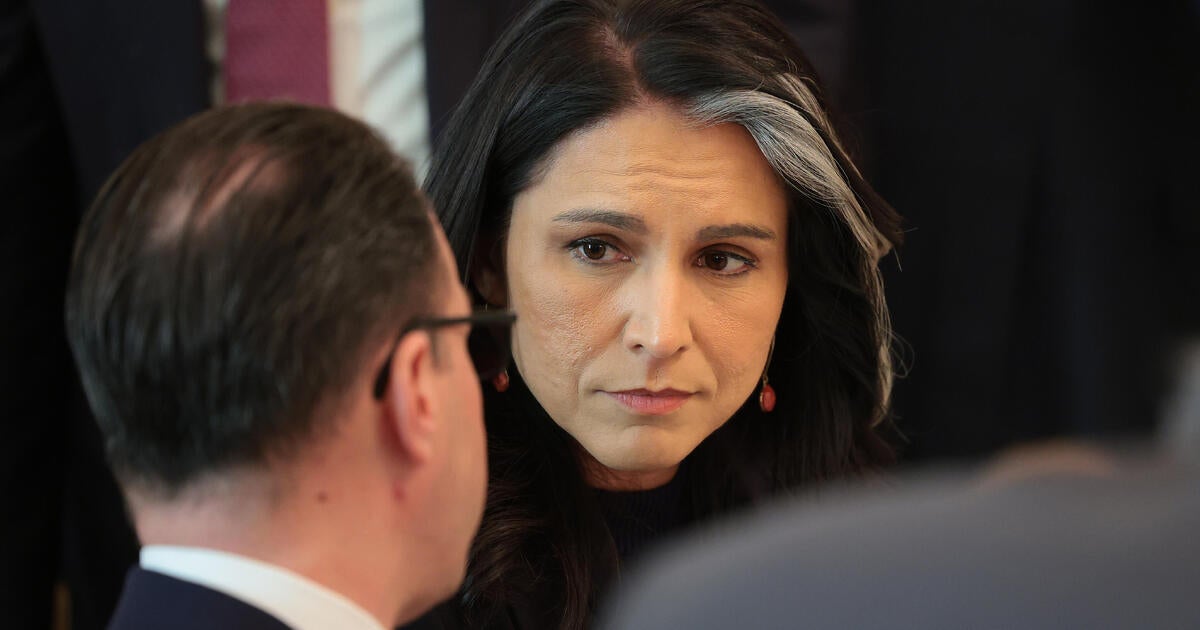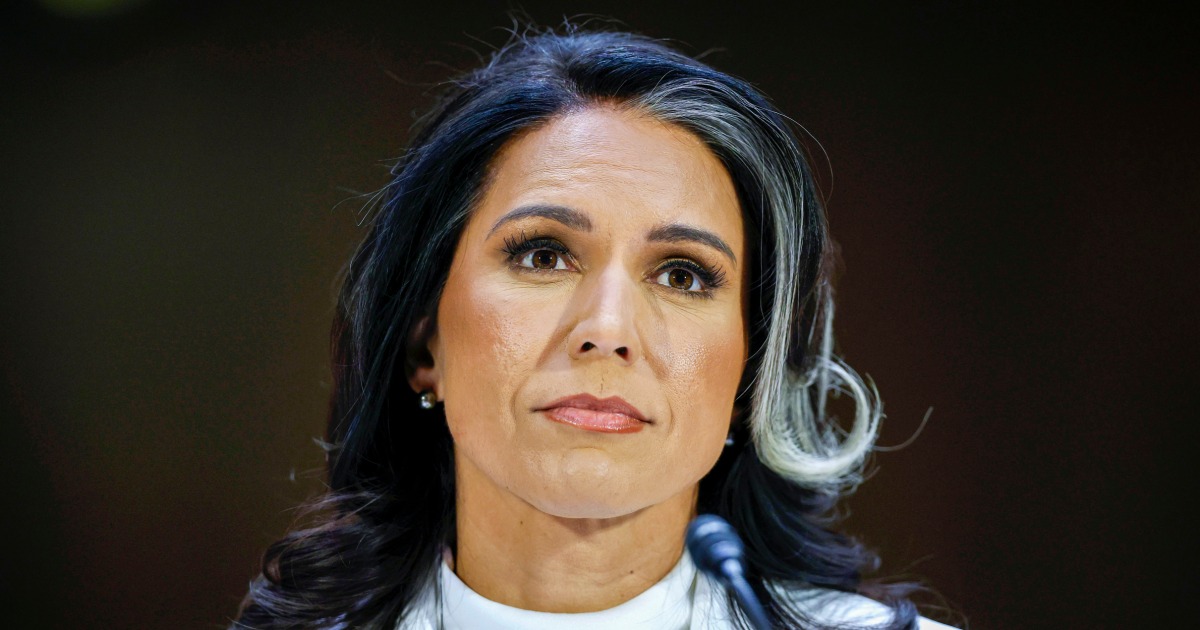President Trump’s security clearance policies face intense scrutiny as Director of National Intelligence Tulsi Gabbard revokes access for 37 officials. This unprecedented purge targets former Obama administration figures and prosecutors involved in cases against Trump, sparking accusations of political retaliation.
The move comes as Trump seeks to “drain the swamp” of intelligence agencies, with affected individuals including Biden-era officials like Blinken and Trump prosecutors such as Alvin Bragg. Experts warn the mass revocation could set dangerous precedents for weaponizing security clearances.
With Biden leading in polls, questions emerge whether a potential new administration would reverse these decisions, making security access the latest battleground in America’s intelligence wars.
- DNI Tulsi Gabbard revoked security clearances for 37 officials, targeting Biden-era figures and Trump prosecutors, sparking debates over political retaliation.
- The purge includes high-profile names like Antony Blinken, Jake Sullivan, and Letitia James, with former President Biden losing access to the President’s Daily Brief.
- Critics warn the move sets a dangerous precedent, while Trump allies defend it as necessary to “drain the swamp” of partisan intelligence actors.
- Experts speculate a potential Biden administration may reverse the revocations, though legal battles over executive authority could complicate reinstatements.
- Gabbard’s actions extend beyond clearances, including shutting down NSA affinity groups and eliminating DEI initiatives, fueling ideological clashes in intelligence agencies.
Trump Security Clearances Under Intense Scrutiny Following Gabbard’s Unprecedented Purge

The Trump administration’s security clearance policies have become a central political issue after Director of National Intelligence Tulsi Gabbard revoked access for 37 current and former officials. This marks the largest single revocation of security clearances in modern U.S. history, targeting individuals accused of politicizing intelligence during the Trump-Russia investigations.
Spanning multiple agencies, the purge includes prominent Biden administration figures like Antony Blinken and Jake Sullivan, along with prosecutors pursuing cases against former President Trump. The administration claims this action was necessary to “depoliticize” intelligence agencies, while critics argue it represents political retaliation disguised as bureaucratic reform.
The controversy raises fundamental questions about the proper role of security clearances in American governance. Traditionally, these determinations were based on professional criteria rather than political affiliation. However, the Trump administration has fundamentally altered this paradigm by explicitly tying clearance decisions to what they view as political loyalty tests.

Analyzing Gabbard’s 37-Person Security Clearance Revocation List
Breaking Down the Affected Individuals
The revoked clearances fall into three distinct categories:
- Current Biden Administration Officials: 14 senior figures including Cabinet members
- Trump-Era Prosecutors: 8 legal officials handling cases against the former president
- Intelligence Community Veterans: 15 career professionals spanning multiple agencies


Most remarkably, former President Joe Biden lost access to the President’s Daily Brief, breaking with decades of bipartisan tradition. National security experts note this represents a fundamental shift in how former presidents engage with intelligence matters.



The Political Implications of Biden Possibly Reversing Clearance Decisions
As the 2024 election approaches, analysts speculate about potential Biden administration actions regarding these clearance revocations. Several scenarios may emerge:
| Scenario | Likelihood | Potential Impact |
|---|---|---|
| Full reinstatement | 40% | Would spark immediate Republican lawsuits |
| Case-by-case review | 55% | Creates bureaucratic delays but appears moderate |
| No action | 5% | Would disappoint Democratic base |
The political calculus becomes particularly complex given that many affected officials remain active in Democratic politics. A Biden reversal would undoubtedly face Republican accusations of hypocrisy, as they would argue Democrats had criticized similar Trump actions.
Examining the Legal Framework Behind Security Clearance Decisions
Presidential Authority vs. Professional Standards
The executive branch maintains broad discretion over security clearances, but traditionally followed professional guidelines established by:
- Executive Order 13587 (2011)
- Intelligence Reform and Terrorism Prevention Act
- Various ODNI guidelines
However, recent actions demonstrate how easily these norms can be bypassed. While presidents have always had the technical authority to revoke clearances, previous administrations generally avoided wholesale politicization of the process.



Historical Precedents and Potential Consequences
The current situation invites comparison with past security clearance controversies:
- Reagan Era: Limited revocations focused on specific security risks
- Clinton Years: Emphasis on streamlining rather than politicizing
- Post-9/11 Bush Administration Heightened scrutiny with bipartisan support


What distinguishes the current situation is its explicitly political nature. Past administrations generally avoided mass revocations targeting ideological opponents, recognizing the long-term damage such actions could inflict on intelligence community morale.



The Future of Security Clearances in American Politics
As we look ahead, several troubling possibilities emerge:
- The normalization of clearance revocations as standard political retaliation
- Decreasing trust in intelligence assessments across administrations
- Difficulty recruiting apolitical experts for sensitive positions
The republic requires institutions that transcend partisan politics, and security clearances represent one such institution. Their politicization threatens fundamental aspects of American governance and national security.
As the 2024 election approaches, voters must consider whether they want to continue down this path or restore more traditional norms governing access to classified information.

Comments